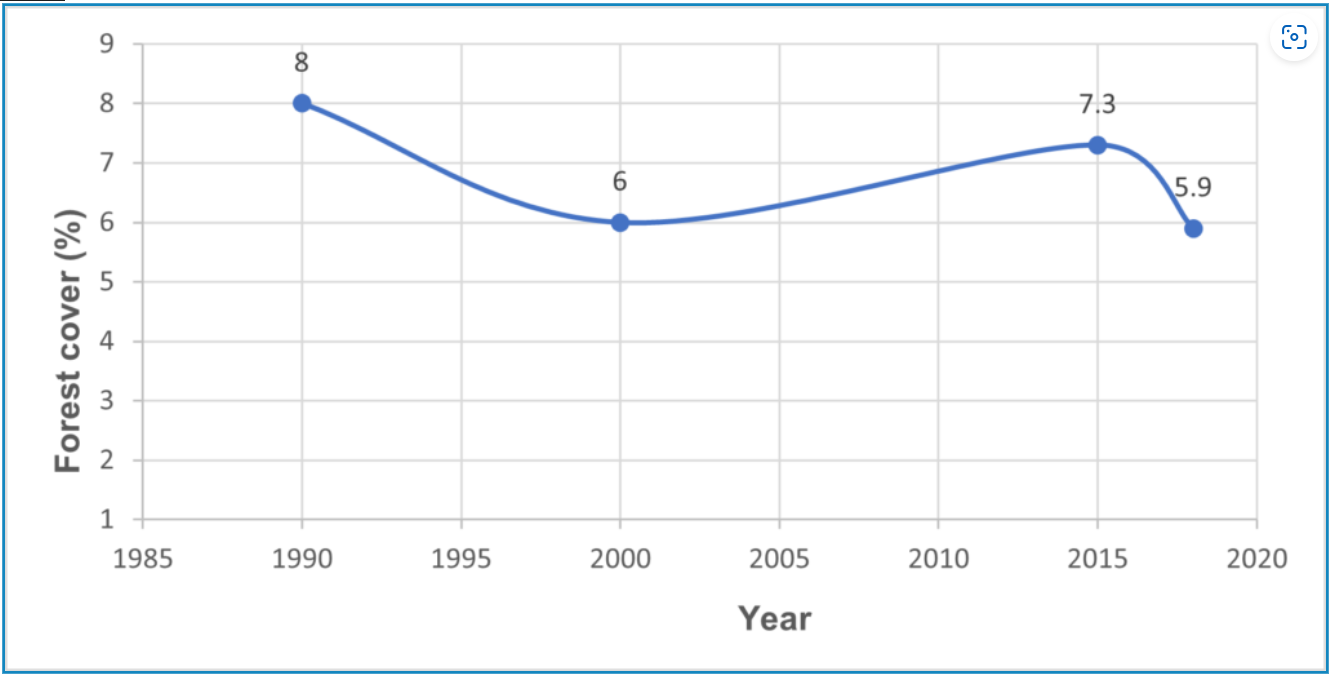Introduction
Police reforms play a crucial role in enhancing social order and fostering a sense of security within a society. Forging partnerships between law enforcement agencies and the communities they serve is key in effectively combating crime, as emphasized in the 2009 Report by the National Task Force on Police Reforms in Kenya. The Kenya Police Service Strategic Plan of 2003-2007 also underscored the importance of “fostering collaborative partnerships among communities, local authorities, and the Police Service” as a crucial strategy in crime prevention. Furthermore, the Revised Police Reforms Programme 2015-2018 placed a strong emphasis on the imperative to bolster the practice of community policing.
The National Police Service embarked on vetting of police officers to ensure competency in the police service. The government also invested in modernizing the police service by implementing the Integrated Communication and Surveillance System (ICSS), which enhanced communication, data management, and surveillance capabilities. This technology has improved response times and crime monitoring. Reforms have been initiated to address issues related to the welfare and working conditions of police officers, including housing, medical care, and allowances.
Status of Implementation of Police Reforms
The Kenya National Taskforce on Police Reforms highlighted some key recommendations for police reforms based on the following pillars: restructuring of the two police services; decentralizing the police services; and enhancing police transparency and accountability.
Under the pillar of restructuring of the two police services, a significant reform effort involved the merger of the Kenya Police and the Administration Police to create a unified National Police Service (NPS). The Office of IGP (Inspector General of Police was created after the merging of the two policing units (Administration police and Kenya Police) to coordinate and oversee the operations of the National Police Service. This merger aimed to streamline and improve law enforcement operations, enhance efficiency, and eliminate duplication of roles and resources. Among the new standing orders is that all operations of the Administration Police and Kenya Police service shall fall under the office of the Inspector General of Police and delegated to two Deputy Inspectors General who will be in charge of the administration and regular police services.
Regarding the pillar of decentralization of police services, one notable reform is granting financial independence to the police service. This move is aimed at ensuring the operational autonomy of the police service and reducing the potential for political interference in law enforcement activities. Further, the appointment of senior officers in the National Police Service, such as the Inspector General, and the Deputy Inspector Generals of police is done in accordance with Article 245 of the Constitution and sections 12 and 13 of the National Police Service Act. This pillar also advocated for the renaming of the Criminal Investigation Unit to the Directorate of Criminal Investigations, which has been implemented and operationalized.
The third pillar addresses enhancing police transparency and accountability with establishment of the Independent Policing Oversight Authority (IPOA). This facilitates independent investigation of complaints against police officers and ensures that cases of misconduct are properly addressed. In addition, the Kenya National Police force has undergone significant internal restructuring, resulting in the establishment of new structures and units such as the Internal Affairs Unit (IAU) and the Professional Standards Unit (PSU). These units are dedicated to investigating and addressing police misconduct and enhancing professionalism within the force.
Community policing initiatives have been promoted to foster closer collaboration and trust between the police and the communities they serve. This approach encourages community participation in crime prevention, intelligence sharing, and problem-solving, leading to increased transparency and accountability in police-community interactions. In addition to these reforms, the introduction of the POLICARE initiative represents a comprehensive approach in addressing Sexual and Gender-Based Violence (SGBV) cases. This initiative establishes a “ONE STOP CENTRE” for SGBV victims, involving multiple agencies, and aims to reduce secondary trauma experienced by survivors and expedite the resolution of such cases, thereby promoting transparency and accountability in handling SGBV cases within the police service.
Furthermore, the Constitution of Kenya (2010) empowers citizens to actively participate in the oversight and management of security, recognizing their vital role in maintaining law and order. In alignment with this constitutional mandate, the National Police Service Act 2011 lays the foundation for implementation of community policing by instituting Community Policing Committees as a pivotal mechanism to effectively operationalize community policing efforts.
The establishment of the National Police Service Commission under Chapter 15 Article 246 of the Constitution of Kenya was also a major reform under this pillar. It took control over the human resource management function of the police service, including recruiting and appointing persons to hold or act in office in the police service, confirming appointments and determining promotions and transfers within the National Police Service, observing due process in exercising disciplinary control over and removal of persons holding or acting in offices within the service.
Logistical reforms in the National Police Service include the provision of more vehicles for NPS personnel and the construction of more housing units in some police stations for serving officers (National Police Service, 2015). Additionally, the Government in 2014 rolled out a group cover for all members of the National Police Service.
Emerging Policy Issues
Despite the gains made, there are emerging policy issues in implementation of police reforms in Kenya. The Kenya National Police force has faced various challenges, including allegations of bribery, human rights violations, and a weak link between law enforcement and the community. For instance, in 2019, Transparency International’s Global Corruption Barometer ranked the Kenyan police as experiencing integrity challenges, with 47% of respondents reporting having paid a bribe to the police in the past year. In 2020, a report by the Independent Policing Oversight Authority (IPOA) highlighted widespread bribery within the police force, revealing that over 30% of police officers had demanded bribes from members of the public.
Despite the merger of the Administration police and the Kenya police, Administration police have retained their uniform, and the color of their vehicles, indicating incomplete merger of the police service.
The inadequate counselling services to police officers is also a major impediment to the reform agenda. The low levels of psychosocial support for police officers negatively impact their performance. Besides the low salaries and poor housing, police officers go through stressful and traumatic experiences in their line of duty and, if not supported appropriately, they can easily break down mentally. Media reports have regularly recorded and reported disturbing incidents such as a police officer indiscriminately shooting others or civilians at times under unknown circumstances.
Persistent mistrust between police officers and citizens remains a notable issue. This factor could partially account for the instances of brutality observed when police officers disperse protestors despite the law permitting citizens to exercise their right to protest, provided they notify the police in advance of their intentions and, as demonstrators, refrain from obstructing roads or engaging in looting.
In addition, The NPS has not yet fully adopted contemporary technology for law enforcement. While criminal records are computerized, the majority, if not all, police stations and outposts in Kenya do not have direct connectivity to share security-related information. Consequently, numerous police stations across the nation document substantial caseloads in a physical Occurrence Book (OB).
The prevailing strategy for crime prevention primarily emphasizes conventional, rudimentary methods such as enforcement, arrests, and “operations” as the primary means of addressing security challenges. Law enforcement agencies place greater reliance on apprehensions, prosecutions, and convictions rather than prioritizing prevention.
Conclusion and Recommendations
It is critical to strengthen the current community policing initiatives that have been vital in reducing the crime rate in the country, such as the “nyumba kumi initiative.” The effectiveness and long-term viability of community policing in Kenya will hinge upon the enhancement of the policy framework, the cultivation of proficient, informed, and law-driven enforcement agencies, the deliberate allocation of funds to bolster community policing initiatives, and the provision of modern equipment and technological support.
Notably, the annual police crime reports seldom address crime prevention, even though local communities could significantly contribute if a robust framework for collaboration between policing agencies and civilians were in place. Transitioning from traditional crime-fighting methods towards a preventive approach is crucial because it offers a more effective, efficient, and equitable means of addressing security challenges while fostering community engagement and trust.
Adequate financial allocation to law enforcement entities such as the NPS, IPOA, and NPSC is also important. Underfunding has hindered both personnel training and the procurement of up-to-date equipment, thereby impeding the envisioned reforms. For these organizations to fulfill their mandates, they require ample resources.
To mitigate instances of police officers experiencing mental health issues because of the demands of their profession, both the NPSC and NPS could enhance their counseling services. The NPSC could consider incorporating police counselors into their annual police recruitment process. These recruits would subsequently undergo obligatory police training before being assigned to each sub-county to address mental health concerns within the police force. This approach would promote the mental well-being of police officers and ensure more comprehensive support.
It is imperative to establish a robust public relations strategy aimed at fostering a positive perception of the police services within the broader public. Often, the public associates policing with arrests and prosecutions. Developing such a strategy would constitute a significant effort in elevating the morale of police officers, who in turn would feel a sense of appreciation from the society they serve.
In conclusion, comprehensive police reforms are essential in addressing the issues plaguing law enforcement and the community in Kenya. A comprehensive review of the 2015-2018 reforms is necessary in paving way for further reform agenda.
Authors: Adrian Matofari , KIPPRA Young Professional
Tobias Opana, KIPPRA Young Professional





